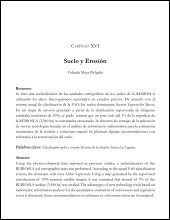Experimental Infection and Detection of Necrotizing Hepatopancreatitis Bacterium in the American Lobster Homarus americanus
Autor
LUZ ANGELICA AVILA VILLA
TERESA GOLLAS GALVAN
MARCEL MARTINEZ PORCHAS
JOSE FERNANDO MENDOZA CANO
JORGE HERNANDEZ LOPEZ
Metadatos
Mostrar el registro completo del ítemResumen
"Necrotizing hepatopancreatitis bacterium (NHPB) is an obligated intracellular bacteria causing severe hepatopancreatic damages and mass mortalities in penaeid shrimp. The worldwide distribution of penaeid shrimp as alien species threatens the life cycle of other crustacean species. The aim of the experiment was to evaluate the possibility of experimentally infecting the American lobster (Homarus americanus) with NHPB extracted from shrimp hepatopancreas. Homogenates from infected shrimp were fed by force to lobsters. Other group of lobsters was fed with homogenates of NHPB-free hepatopancreas. After the 15th day from initial inoculation, the presence of NHPB was detected by polymerase chain reaction in feces and hepatopancreas from lobsters inoculated with infected homogenates. Necrotized spots were observed in the surface of lobster hepatopancreas. In contrast, lobsters fed on NHPB-free homogenates resulted negative for NHPB. Evidence suggests the plasticity of NHPB which can infect crustacean from different species and inhabiting diverse latitudes. Considering the results, the American lobster could be a good candidate to maintain available NHPB in vivo."
Colecciones
Ítems relacionados
Mostrando ítems relacionados por Título, autor o materia.
-
PROMOCIÓN DEL PERIFITON PARA EL CULTIVO DE CAMARÓN BLANCO: HACIA UNA ACUICULTURA ECOLÓGICA
DOMENICO VOLTOLINA LOBINA; JUAN MANUEL AUDELO NARANJO; MARIA DEL ROSARIO PACHECO MARGES -
Suelo y Erosión
YOLANDA LOURDES MAYA DELGADO


